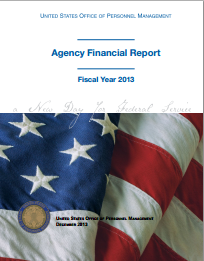- Home
- Agencies
- Department of Agriculture
- Department of Housing and Urban Development
- General Services Administration
- Department of Commerce
- Department of the Interior
- National Aeronautics and Space Administration
- Department of Defense
- Department of Justice
- National Science Foundation
- Department of Education
- Department of Labor
- Office of Personnel Management
- Department of Energy
- Department of State
- Small Business Administration
- Environmental Protection Agency
- Department of Transportation
- Social Security Administration
- Department of Health and Human Services
- Department of the Treasury
- U.S. Agency for International Development
- Department of Homeland Security
- Department of Veterans Affairs
- Goals
- Initiatives
- Programs
Primary tabs
Key to Changes
This text is Revised text
This word has been added to the text
This text is Last Published text
This word has been removed from the text
Modifed styling with no visual changes
Strategic Objective
SG07.01 Prepare the Federal workforce for retirement from entry-on-duty across every stage of the employee life-cycle
Strategic Objective
Overview
- Establishing shared responsibility among OPM offices and agencies to ensure consistent information, tools, and counseling to employees.
- Establishing government-wide data elements and standards spanning the employee life-cycle for management and receipt of timely and accurate employee data required for retirement.
- Establishing and enforcing standards for information systems used for management of retirement counseling and application preparation, and application transmittal.
- Promulgating policy harmonization and standards across Government and issue requirement for all agencies and payroll centers to provide data in an appropriate format.
- Continuing agency audits to improve quality of retirement submissions.
- Engaging employees across the employee life cycle in preparation for retirement.
Progress Update
OPM provides webinar trainings to the HR Community through OPM’s YouTube Channel and the OPM website. The webcasts include Processing Phased Retirement, TSP Transfers and Rollovers: How, When, and Why (or Why Not!); and Overview of Federal Employees Insurance Benefits. OPM delivered six webinars in FY 2015 that received more than 20,000 views. Because the webcasts are hosted online, they continue to provide training to benefits officers on key topics related to retirement. The webinars are available at: https://www.opm.gov/retirement-services/benefits-officers-center/training/.
OPM provided in-person Federal Erroneous Retirement Coverage Corrections Act (FERCCA) trainings to the Department of Energy, Securities and Exchange Commission, General Services Administration, and the Department of the Interior. OPM also provided training on the Act to the Department of Justice. In July, OPM held a Roadshow event with the Securities and Exchange Commission and Federal Executive Board to provide a Civil Service Retirement System and Federal Employees Retirement System overview.
In FY 2015, budget constraints across the Federal Government resulted in OPM’s cancellation of its annual Agency Benefit Officers’ Training conference. To continue to meet benefits officer mandatory training needs, OPM dedicated time and resources to developing a virtual benefits officers training seminar. Through the Benefits Officers Virtual Training Seminar, held in November 2014, OPM provided updates to participants on benefits initiatives, shared best practices, and discussed crosscutting issues in retirement, insurance, and Thrift Savings Plan administration. The event also featured information on OPM’s Retirement Audit initiative and how to provide a healthy retirement case to OPM. The agency provided an additional virtual Federal benefits seminar in June 2015 that integrated feedback from the November event. The seminar focused on increasing knowledge of the Federal benefits programs and improvements to the retirement process. More than 575 people registered for the June seminar, an increase from the more than 450 registrations for the November seminar.
While virtual trainings enable OPM to reach a wide audience, the downside is that they do not provide the same level of networking, engagement, and relationship building as in-person trainings. OPM will assess the ability of individuals to travel and attend in-person seminars on an annual basis. If in-person attendance is not feasible, OPM plans to continue providing virtual training seminars.
OPM, in consultation with the Office of Management and Budget, has determined that performance toward this strategy is making noteworthy progress.









